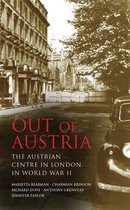Becoming Austrians Jews and Culture between the World Wars
Afbeeldingen
Sla de afbeeldingen overArtikel vergelijken
Auteur:
Lisa Silverman
- Engels
- Hardcover
- 9780199794843
- 13 september 2012
- 334 pagina's
Samenvatting
By isolating the years between the World Wars and examining formative events in both Vienna and the provinces, this book demonstrates that an intensified marking of people, places, and events as "Jewish" accompanied the crises occurring in the wake of Austria-Hungary's collapse, leaving profound effects on Austria's cultural legacy.
The collapse of Austria-Hungary in 1918 left all Austrians in a state of political, social, and economic turmoil, but Jews in particular found their lives shaken to the core. Although Jews' former comfort zone suddenly disappeared, the dissolution of the Dual Monarchy also created plenty of room for innovation and change in the realm of culture. Jews eagerly took up the challenge to fill this void, becoming heavily invested in culture as a way to shape their new, but also vexed, self-understandings. By isolating the years between the World Wars and examining formative events in both Vienna and the provinces, Becoming Austrians: Jews and Culture between the World Wars demonstrates that an intensified marking of people, places, and events as "Jewish" accompanied the crises occurring in the wake of Austria-Hungary's collapse, leaving profound effects on Austria's cultural legacy. In some cases, the consequences of this marking resulted in grave injustices. Philipp Halsmann, for example, was wrongfully imprisoned for the murder of his father years before he became a world-famous photographer. And the men who shot and killed writer Hugo Bettauer and physicist and philosopher Moritz Schlick received inadequate punishment for their murderous deeds. But engagements with the terms of Jewish difference also characterized the creation of culture, as shown in Hugo Bettauer's satirical novel The City without Jews and its film adaptation, other novels by Veza Canetti, David Vogel, A.M. Fuchs, Vicki Baum, and Mela Hartwig, and performances at the Salzburg Festival and the Yiddish theater in Vienna. By examining the role Jewish difference played in the lives, works, and deeds of a broad range of Austrians, this study reveals how the social codings of politics, gender, and nation received a powerful boost with the application of the "Jewish" label.
The collapse of Austria-Hungary in 1918 left all Austrians in a state of political, social, and economic turmoil, but Jews in particular found their lives shaken to the core. Although Jews' former comfort zone suddenly disappeared, the dissolution of the Dual Monarchy also created plenty of room for innovation and change in the realm of culture. Jews eagerly took up the challenge to fill this void, becoming heavily invested in culture as a way to shape their new, but also vexed, self-understandings. By isolating the years between the World Wars and examining formative events in both Vienna and the provinces, Becoming Austrians: Jews and Culture between the World Wars demonstrates that an intensified marking of people, places, and events as "Jewish" accompanied the crises occurring in the wake of Austria-Hungary's collapse, leaving profound effects on Austria's cultural legacy. In some cases, the consequences of this marking resulted in grave injustices. Philipp Halsmann, for example, was wrongfully imprisoned for the murder of his father years before he became a world-famous photographer. And the men who shot and killed writer Hugo Bettauer and physicist and philosopher Moritz Schlick received inadequate punishment for their murderous deeds. But engagements with the terms of Jewish difference also characterized the creation of culture, as shown in Hugo Bettauer's satirical novel The City without Jews and its film adaptation, other novels by Veza Canetti, David Vogel, A.M. Fuchs, Vicki Baum, and Mela Hartwig, and performances at the Salzburg Festival and the Yiddish theater in Vienna. By examining the role Jewish difference played in the lives, works, and deeds of a broad range of Austrians, this study reveals how the social codings of politics, gender, and nation received a powerful boost with the application of the "Jewish" label.
Productspecificaties
Wij vonden geen specificaties voor jouw zoekopdracht '{SEARCH}'.
Inhoud
- Taal
- en
- Bindwijze
- Hardcover
- Oorspronkelijke releasedatum
- 13 september 2012
- Aantal pagina's
- 334
- Illustraties
- Nee
Betrokkenen
- Hoofdauteur
- Lisa Silverman
- Hoofduitgeverij
- Oxford University Press Inc
Overige kenmerken
- Extra groot lettertype
- Nee
- Product breedte
- 169 mm
- Product hoogte
- 25 mm
- Product lengte
- 241 mm
- Studieboek
- Ja
- Verpakking breedte
- 169 mm
- Verpakking hoogte
- 25 mm
- Verpakking lengte
- 241 mm
- Verpakkingsgewicht
- 728 g
EAN
- EAN
- 9780199794843
Je vindt dit artikel in
- Categorieën
- Taal
- Engels
- Periode
- 20e eeuw
- Boek, ebook of luisterboek?
- Boek
- Land
- Oostenrijk
Kies gewenste uitvoering
Kies je bindwijze
(3)
Prijsinformatie en bestellen
De prijs van dit product is 89 euro en 99 cent.
2 - 3 weken
Verkoop door bol
- Prijs inclusief verzendkosten, verstuurd door bol
- Ophalen bij een bol afhaalpunt mogelijk
- 30 dagen bedenktijd en gratis retourneren
- Dag en nacht klantenservice
Rapporteer dit artikel
Je wilt melding doen van illegale inhoud over dit artikel:
- Ik wil melding doen als klant
- Ik wil melding doen als autoriteit of trusted flagger
- Ik wil melding doen als partner
- Ik wil melding doen als merkhouder
Geen klant, autoriteit, trusted flagger, merkhouder of partner? Gebruik dan onderstaande link om melding te doen.








